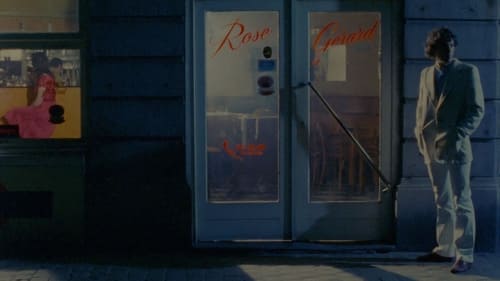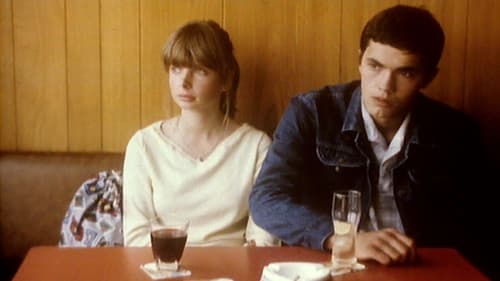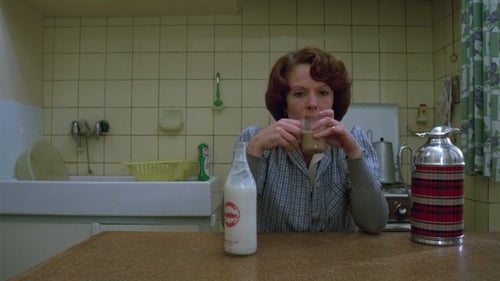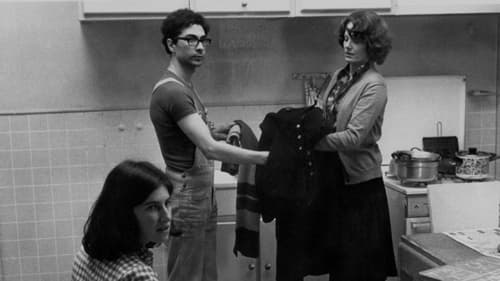Jan Decorte
Nascimento : 1950-05-09, Wilrijk, Belgium

Following over two dozen different people in the almost wordless atmosphere of a dark night in a Brussels town, Akerman examines acceptance and rejection in the realm of romance.

Writer
Jan Decorte's second feature film is an adaptation of the play Hedda Gabler by Norwegian playwright Henrik Ibsen. Decorte moved the locus of action of Ibsen's realistic play from 1890 to 1950, twenty-eight years earlier than when the film was shot. The story begins when Hedda returns home from an overly long honeymoon with her newly wed but colourless husband Tesman. She is pregnant and will be courted by the writer Eljert Lövbor, an old lover who is about to break through with an exceptional novel of autobiographical quality [Avila].

Editor
Jan Decorte's second feature film is an adaptation of the play Hedda Gabler by Norwegian playwright Henrik Ibsen. Decorte moved the locus of action of Ibsen's realistic play from 1890 to 1950, twenty-eight years earlier than when the film was shot. The story begins when Hedda returns home from an overly long honeymoon with her newly wed but colourless husband Tesman. She is pregnant and will be courted by the writer Eljert Lövbor, an old lover who is about to break through with an exceptional novel of autobiographical quality [Avila].

Producer
Jan Decorte's second feature film is an adaptation of the play Hedda Gabler by Norwegian playwright Henrik Ibsen. Decorte moved the locus of action of Ibsen's realistic play from 1890 to 1950, twenty-eight years earlier than when the film was shot. The story begins when Hedda returns home from an overly long honeymoon with her newly wed but colourless husband Tesman. She is pregnant and will be courted by the writer Eljert Lövbor, an old lover who is about to break through with an exceptional novel of autobiographical quality [Avila].

Director
Jan Decorte's second feature film is an adaptation of the play Hedda Gabler by Norwegian playwright Henrik Ibsen. Decorte moved the locus of action of Ibsen's realistic play from 1890 to 1950, twenty-eight years earlier than when the film was shot. The story begins when Hedda returns home from an overly long honeymoon with her newly wed but colourless husband Tesman. She is pregnant and will be courted by the writer Eljert Lövbor, an old lover who is about to break through with an exceptional novel of autobiographical quality [Avila].

Writer
An actor pretends to be a writer. He sits in his office, reflects and puts words to paper, which are then performed by Jan Decorte. The text influences the situations shown and vice versa [Avila].

Director
An actor pretends to be a writer. He sits in his office, reflects and puts words to paper, which are then performed by Jan Decorte. The text influences the situations shown and vice versa [Avila].

Producer
Pierre lives with his mother in an antiquated house in a run-down working-class area. Every morning, Pierre takes the tram to his job at the town hall, where he listens to his colleagues' jokes over the lunch break. His only hope of banishing his boredom and frustration is a girl from the gymnastics club. One evening, when his mother is out of the house, he decides to invite her into his home [Avila].

Writer
Pierre lives with his mother in an antiquated house in a run-down working-class area. Every morning, Pierre takes the tram to his job at the town hall, where he listens to his colleagues' jokes over the lunch break. His only hope of banishing his boredom and frustration is a girl from the gymnastics club. One evening, when his mother is out of the house, he decides to invite her into his home [Avila].

Director
Pierre lives with his mother in an antiquated house in a run-down working-class area. Every morning, Pierre takes the tram to his job at the town hall, where he listens to his colleagues' jokes over the lunch break. His only hope of banishing his boredom and frustration is a girl from the gymnastics club. One evening, when his mother is out of the house, he decides to invite her into his home [Avila].

Sylvain Dielman
Considerado como a obra-prima de Akerman, traz a atriz Delphine Seyrig no papel de Jeanne Dielman, uma jovem viúva que vive com seu filho Sylvain seguindo uma ordem imutável: à tarde, enquanto seu filho está na escola, ela cuida do apartamento e recebe os clientes.

During the filming of "Jeanne Dielman" Sami Frey recorded what was happening on the set. A film about a film in the making.










